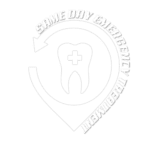Symptoms of Toothache:
Experiencing a toothache can be more than just a nuisance—it can disrupt your daily routine and cause significant discomfort. Recognizing the symptoms of a toothache is the first step toward finding relief and addressing the underlying issue. Toothaches can present in various ways, each with its own unique set of discomforts. From sharp pains to swollen gums, here’s what to watch out for:
- Sharp or Dull Pain: Toothaches often present as either sharp, stabbing pains or dull, persistent aches. The intensity of the pain can vary from mild to excruciating and may worsen with pressure or temperature changes.
- Sensitivity to Hot or Cold: If you experience sudden sensitivity to hot or cold foods and beverages, it could be a sign of tooth decay or nerve irritation.
- Throbbing Sensation: Some toothaches are accompanied by a throbbing sensation, which can be especially bothersome and disruptive, particularly when trying to sleep.
- Swelling or Inflammation: Inflammation around the affected tooth or gums is common with toothaches. Swelling may be localized to the area of the tooth or could affect a larger portion of the face and jaw.
- Painful Chewing: Difficulty chewing or biting down without experiencing pain is another symptom of a toothache. This discomfort may be exacerbated by certain foods or chewing on the affected side of the mouth.
- Headaches or Earaches: Toothaches can sometimes radiate pain to neighboring areas, such as the head or ears. This referred pain can make it challenging to pinpoint the exact source of the discomfort.
- Fever or Malaise: In severe cases of tooth infection, systemic symptoms such as fever, fatigue, or swollen lymph nodes may accompany the toothache. These symptoms indicate a more serious underlying issue that requires prompt dental attention.
If you’re experiencing any of these symptoms, it’s essential to consult with a dentist as soon as possible to determine the underlying cause of your toothache and receive appropriate treatment.
Treatment For Toothache
When a toothache strikes, finding relief becomes a top priority. Fortunately, several treatment options are available to alleviate the discomfort and address the underlying cause of the toothache. Here are some common treatments your dentist may recommend:
- Pain Relief Medications: Over-the-counter pain relievers such as ibuprofen (Advil, Motrin) or acetaminophen (Tylenol) can help manage the pain associated with toothaches.
- Topical Analgesics: Applying numbing gels or creams directly to the affected area can provide temporary relief from toothache pain.
- Antibiotics: If the toothache is caused by an infection, your dentist may prescribe antibiotics to help clear the infection and prevent it from spreading.
- Dental Procedures: Depending on the underlying cause of the toothache, various dental procedures may be necessary to provide long-term relief.
- Home Remedies: In addition to professional treatments, several home remedies may provide temporary relief from toothache pain.
Remember, the best course of action for treating a toothache depends on the underlying cause, so it’s essential to consult with your dentist for an accurate diagnosis and personalized treatment plan.
Preventing Toothaches: Tips For maintaining dental health
While dealing with a toothache can be uncomfortable and disruptive, taking proactive steps to prevent toothaches can help keep your smile healthy and pain-free. Here are some tips for maintaining dental health and reducing your risk of developing toothaches:
- Practice Good Oral Hygiene: Brush your teeth twice a day with fluoride toothpaste and floss daily to remove plaque and food particles from between your teeth and along the gumline.
- Visit Your Dentist Regularly: Schedule regular dental check-ups and cleanings with your dentist at least twice a year.
- Watch Your Diet: Limit sugary and acidic foods and beverages, as they can contribute to tooth decay and erosion of tooth enamel.
- Use Fluoride Products: Use fluoride toothpaste and mouthwash to strengthen tooth enamel and protect against cavities.
- Avoid Tobacco Products: Smoking and chewing tobacco can increase your risk of developing gum disease and oral infections, which can lead to toothaches.
- Protect Your Teeth: Wear a mouthguard when participating in sports or activities that could result in dental injuries.
- Manage Stress: Practice stress-reducing techniques such as deep breathing, meditation, or yoga to help prevent bruxism and reduce your risk of toothaches.
By following these preventive measures and maintaining good dental habits, you can reduce your risk of developing toothaches and enjoy a healthier, happier smile for years to come.
Toothaches can be a source of significant discomfort and disruption in our lives, but they are not inevitable. By prioritizing good oral hygiene, regular dental check-ups, and healthy lifestyle habits, you can reduce your risk of developing toothaches and maintain a healthy smile for years to come. However, if you find yourself dealing with a persistent toothache despite your best efforts, don’t hesitate to seek professional dental care. The expert team at Antoine Dental Center is here to provide compassionate and comprehensive dental services to address your dental needs. With our state-of-the-art facilities and experienced staff, we’ll work tirelessly to alleviate your pain and restore your dental health. Schedule an appointment with us today and take the first step toward a pain-free smile!



